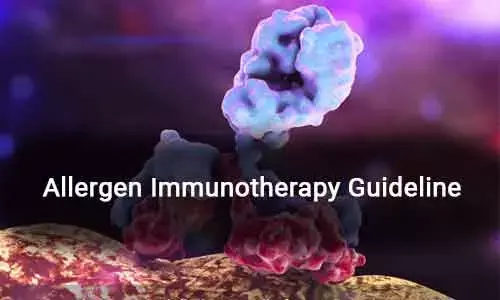- Home
- Medical news & Guidelines
- Anesthesiology
- Cardiology and CTVS
- Critical Care
- Dentistry
- Dermatology
- Diabetes and Endocrinology
- ENT
- Gastroenterology
- Medicine
- Nephrology
- Neurology
- Obstretics-Gynaecology
- Oncology
- Ophthalmology
- Orthopaedics
- Pediatrics-Neonatology
- Psychiatry
- Pulmonology
- Radiology
- Surgery
- Urology
- Laboratory Medicine
- Diet
- Nursing
- Paramedical
- Physiotherapy
- Health news
- Fact Check
- Bone Health Fact Check
- Brain Health Fact Check
- Cancer Related Fact Check
- Child Care Fact Check
- Dental and oral health fact check
- Diabetes and metabolic health fact check
- Diet and Nutrition Fact Check
- Eye and ENT Care Fact Check
- Fitness fact check
- Gut health fact check
- Heart health fact check
- Kidney health fact check
- Medical education fact check
- Men's health fact check
- Respiratory fact check
- Skin and hair care fact check
- Vaccine and Immunization fact check
- Women's health fact check
- AYUSH
- State News
- Andaman and Nicobar Islands
- Andhra Pradesh
- Arunachal Pradesh
- Assam
- Bihar
- Chandigarh
- Chattisgarh
- Dadra and Nagar Haveli
- Daman and Diu
- Delhi
- Goa
- Gujarat
- Haryana
- Himachal Pradesh
- Jammu & Kashmir
- Jharkhand
- Karnataka
- Kerala
- Ladakh
- Lakshadweep
- Madhya Pradesh
- Maharashtra
- Manipur
- Meghalaya
- Mizoram
- Nagaland
- Odisha
- Puducherry
- Punjab
- Rajasthan
- Sikkim
- Tamil Nadu
- Telangana
- Tripura
- Uttar Pradesh
- Uttrakhand
- West Bengal
- Medical Education
- Industry
Allergen Immunotherapy in House dust mite‐driven allergic asthma: EAACI Guidelines

The European Academy of Allergy and Clinical Immunology has developed a clinical practice guideline providing evidence‐based recommendations for the use of house dust mites (HDM) AIT as an add‐on treatment for HDM‐driven allergic asthma. Allergen immunotherapy (AIT) is a procedure of inducing tolerance to a specific allergen by repetitive administration of an allergen. It has been in use for the treatment of allergic disease for more than 100 years.
Asthma represents a major health burden globally. Patients with allergic asthma not adequately controlled on pharmacotherapy (including biologics) represent an unmet health need of Allergen immunotherapy. Assessing the role of allergic sensitization in asthma pathophysiology is an important step in disease workup because such patients might benefit from allergen immunotherapy (AIT) as an add‐on to pharmacological asthma therapy.
Major recommendations are _
• House dust mite (HDM) subcutaneous immunotherapy (SCIT) is recommended for children and adults with controlled HDM‐driven allergic asthma as an add‐on treatment to regular therapy to decrease symptoms and medication use.
• HDM SCIT is recommended for adults with controlled HDM‐driven allergic asthma as the add‐on treatment to regular therapy to decrease allergen‐specific airway hypersensitivity and to improve quality of life.
• HDM sublingual immunotherapy (SLIT) drops are recommended for children with controlled HDM‐driven allergic asthma as an add‐on treatment to decrease symptoms and medication use.
• HDM SLIT‐tablet is recommended for adults with controlled and partially controlled HDM‐driven allergic asthma as an add‐on treatment to regular therapy to decrease exacerbations and to improve asthma control.
Most of the clinical trials of AIT in asthma evaluated clinically relevant parameters such as symptom and medication scores. There is a clear need for better-designed studies of HDM AIT in HDM‐driven allergic asthma using harmonized and validated clinical outcomes. Respiratory physicians should be included in the trial design.
.
For further reference log on to :
Dr Kamal Kant Kohli-MBBS, DTCD- a chest specialist with more than 30 years of practice and a flair for writing clinical articles, Dr Kamal Kant Kohli joined Medical Dialogues as a Chief Editor of Medical News. Besides writing articles, as an editor, he proofreads and verifies all the medical content published on Medical Dialogues including those coming from journals, studies,medical conferences,guidelines etc. Email: drkohli@medicaldialogues.in. Contact no. 011-43720751


